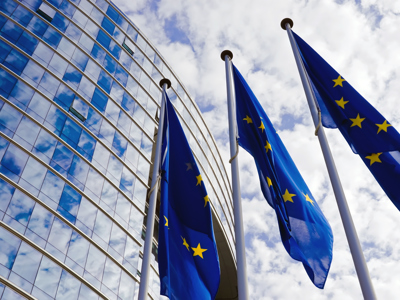
Supermarket sustainability agreements –NGOs are reassured the risks to consumers are low
Niamh Kelly discusses recent guidance issued by the Competition and Markets Authority (CMA) on ‘sustainability agreements’, which must generate green benefits without hurting consumers.
Posted on 02 April 2024
On 19 March 2024, the CMA published informal guidance it has given to the charity WWF-UK on its proposed sustainability initiative WWF Basket. The proposal would see leading supermarkets commit to increasing the number of suppliers they use that have set science-based targets to reach net-zero, with the aim of reducing greenhouse gas emissions across the retailers’ supply chains. After reviewing the proposed agreement, the CMA found there is a low risk of the initiative leading to negative impacts for consumers or competition.
Why did the CMA publish this guidance?
Under competition law, businesses are generally not allowed to enter into agreements with their competitors to cooperate, due to the risk this could lead to bad outcomes for consumers.
In recent years, some businesses have claimed that fear of breaking these rules has prevented them from pursuing initiatives that would be good for the environment and which require collaboration between competitors, for example because an industry standard needs to be set, or because there would be a disadvantage for whichever business led the way due to the initial costs of a more sustainable approach.
In response, in October 2023 the CMA published its Green Agreements Guidance, setting out circumstances in which (a) it thinks businesses are allowed to cooperate for green aims without breaking competition law, or (b) can benefit from an exemption from the rules on the basis that the benefits of the agreement outweigh the potential costs to consumers. One of the requirements for this kind of exemption is that consumers get a ‘fair share’ of the benefits generated by the agreement.
The CMA also announced an ‘open door’ policy, offering to answer questions that parties had about specific green agreements they were entering into.
Consumers should get their ‘fair share’ from the WWF initiative
In this case, the CMA concluded that the WWF initiative is a “climate change agreement” because it seeks to reduce so-called “scope 3” emissions, i.e. the indirect emissions that arise in supermarkets’ supply chains from their suppliers, to help the UK reach its binding net zero targets.
The CMA has identified climate change agreements as a special case due to (1) the unprecedented risk that climate change poses (including the urgency required to address it), (2) the fact it is a key issue that the general public is concerned about and (3) the fact the UK government has agreed to binding legal commitments to combat climate change.
This means that in this context, the CMA takes a different approach when assessing which consumers need to receive a ‘fair share’ of the agreement. Normally, to benefit from an exemption from competition law, an agreement must clearly benefit the specific consumers in the market the agreement affects (e.g. the customers who buy the specific product). However, for climate change agreements like the WWF Basket, the CMA will take into account benefits for all consumers in the UK.
In this case, the CMA noted the negative costs to society as a whole from not meeting net zero targets, including the impact on food supply. Therefore, it concluded that the benefits to consumers over time (from helping the UK achieve its net zero targets) are likely to outweigh any possible negative effects for competition or prices.
In addition to these climate change benefits, the CMA found there is a low risk of this proposal having harmful effects on consumers in any event. Supermarkets will still be free to compete on the price and quality of the products they sell and the CMA believes there will still be competitive pressure on retailers to minimise any additional costs they pass on to consumers.
NGOs lead the way as business lags behind
This is the second time the CMA has ever published informal guidance like this. In November 2023 the CMA provided guidance to Fairtrade giving the green light to its Shared Impact Initiative (also with supermarket retailers) which aims to get food stores to buy certain products from more sustainable sources.
Therefore, NGOs are leading the way in encouraging businesses to collaborate for the benefit of the planet and ensuring these agreements work for consumers too. It also seems that supermarket retailers are currently most interested in pursuing green collaboration (perhaps due to increased awareness of environmental issues from their customers).
Win-win? Time will tell
Of course, the CMA noted that its guidance necessarily has limitations; the proposal has not yet been implemented and could of course change or develop as it is being finalised and put in place.
As a result, it is important for companies to monitor the impact of their agreements in practice, to ensure that (1) the green benefits promised are actually generated and (2) UK consumers get their fair share of those benefits. For example, in this case, the WWF proposal provides for the setting of net-zero targets, but not their implementation (although the CMA has assumed that most suppliers who set targets will then try to meet them). Businesses need to follow through on these agreements, so that both people and the planet can benefit.

Niamh Kelly
Niamh is an associate solicitor in the international and group claims department

International
Leigh Day represents people from around the world in fighting for their rights against corporations and governments. We have secured justice for tens of thousands of women, men and children

EU Directive on Corporate Sustainability Due Diligence: no plans for replication in the UK
Anna Barr and Oliver Holland, from our international department, follow up on their blog on the EU Corporate Due Diligence and Corporate Accountability Directive and express their disappointment that the UK government does not plan to replicate the directive.

